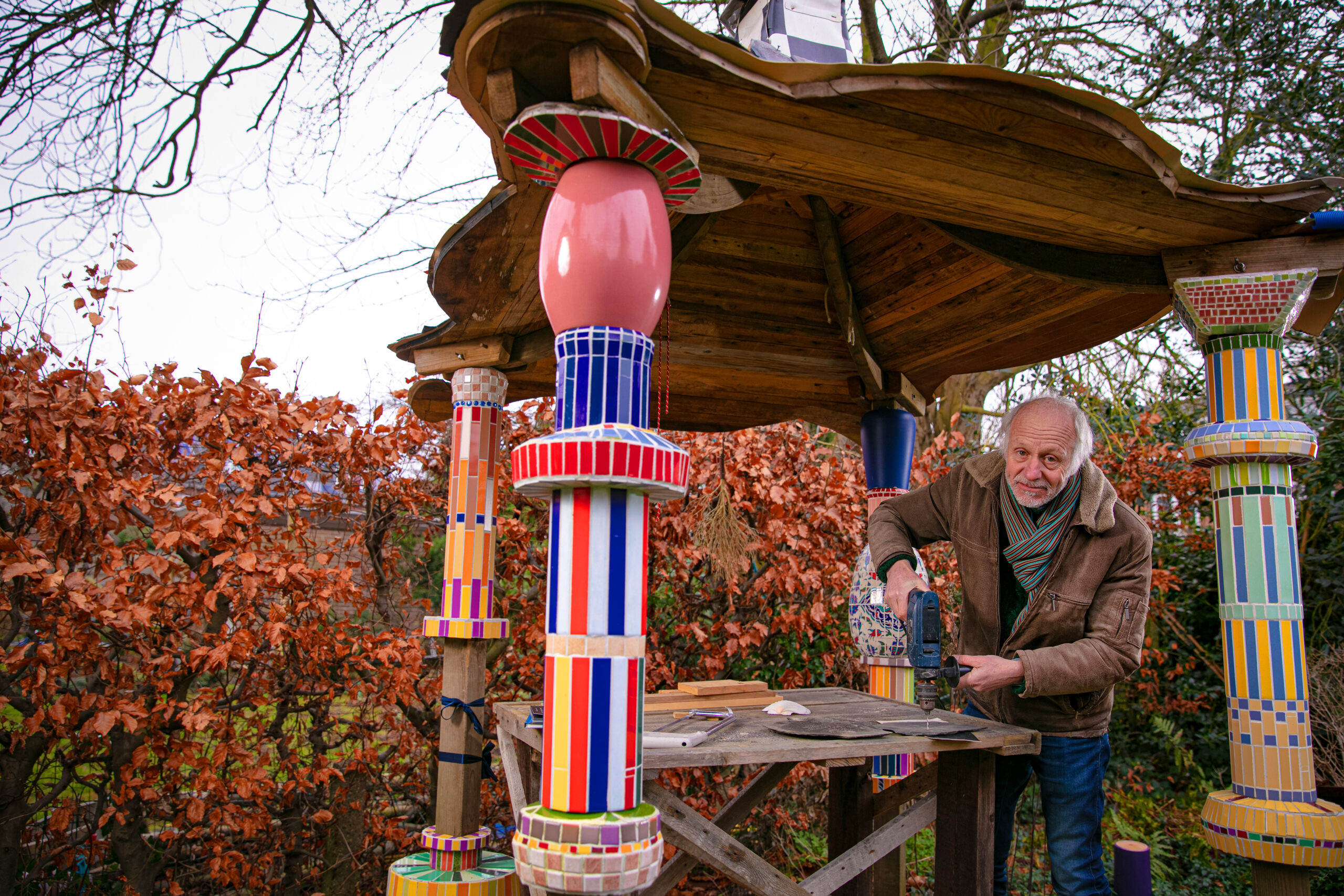Both science and the media have changed a lot in that time. And many modest Wageningen types can’t handle all the loudmouths on social media, says Niessen.
The world looked very different when Jac Niessen started work as a WUR science information officer in 2003. The journals Nature and Science had published the human genome in 2000 and genetic research picked up speed. ‘We went from the microscope to the building blocks of life.’ At the same time, researchers and society at large were making the switch from analogue to digital ways of working. ‘It was a period of great expectations,’ recalls Niessen, ‘but the much-feted scientific breakthroughs didn’t always deliver. In spite of all the genetic knowledge we have, we still can’t cure many genetic diseases.’
Niessen came from the Dutch Research Council (NWO). ‘We thought NWO was a complex organization, but WUR was a lot more complicated! You had the university and the research institutes, contract research and statutory research tasks, the science groups and then Rikilt. I gradually found my way around, thanks to we@wur and contact with researchers about questions from the media. And once you’re at Wageningen, you belong.’
Niessen studied biology himself. ‘I got some insight into science. It’s very important to communicate about the scientific method, because all sorts of claims are made. The public sees a scientist in her white coat, but not her ideas and hypotheses. Luckily there are TV programmes such as De kennis van nu [What we know today), which do show the scientific process at work. A process that can be hard to understand. PhD students’ families often only tell them after their talk at their graduation ceremony: “Oh, now I get what you’ve been working on all those years!”’
Social media
The media have changed a lot in the last 20 years as well. ‘I got a Twitter account in 2009. At first there was a lot of rubbish on Twitter; scientists didn’t take it seriously. But then a plane crashed at Schiphol and the news was on Twitter first. That was a breakthrough: eyewitnesses became reporters.’
Now, social media dominate the news. And that’s problematic for a lot of researchers, Niessen believes. ‘I was talking recently to a researcher who is coming off LinkedIn to protect himself. People often post unfounded claims on the platform and he had to think about whether to respond. And you have to respond fast, so it interrupts your real work. Plus, on social media issues get polarized. There are researchers who engage with social media successfully. But a lot of researchers I know don’t like social media at all.’
Wageningen people should be prouder of what they achieve
You’ve got the loudmouths on one side on social media, and modest researchers on the other side. Niessen: ‘Wageningen people should be prouder of what they achieve: they have a tremendous impact. They are too modest, but maybe that goes with the territory: things like soil and microbiology are not high-profile. Image and appearances are more important than the subject matter these days. But at WUR, people think the subject matter is more important. Me too — it’s the science that interests me. The public image is two-dimensional, whereas the substance of what we do is 3D.’
Press
Nielssen does have some advice for scientists on how to deal with the media better. ‘You should train young researchers to tell their story to a lay audience. Researchers already do that much better than they used to, partly thanks to initiatives such as Famelab, in which you learn to describe your research in a nutshell, and how to present it. You’re asked to state what your research is about in one sentence, and why it is useful in two sentences.’
Dealing with the press is an art in itself. ‘Journalists often only write down half of what you say, and then they frame your research in their own way. The media do a lot of copy-pasting too, but not many journalists check the source of the story. You might well deplore that, but the papers have fewer and fewer journalists these days yet they still have to fill their pages or website. No one wants to pay more for news now that it’s available everywhere, free. So it’s almost impossible to earn your keep from writing. If you want quality journalism, you’ve got to pay for it. Everything has its price.’
I have felt part of a village community on the campus
For the past 10 years, Niessen has cycled to work almost daily from his home in Nijmegen on his e-bike. ‘I have felt part of a village community on the campus. WUR is a global village, with disciplines and students from many different backgrounds, and they are all enthusiastic. I have sometimes shown critical journalists around, and they tend to ask random students probing questions about WUR. The students then come out with fantastic advertisements about how much they love Wageningen, which no amount of publicity could beat. It’s an honour to be part of it.’
Niessen has been working at home since the pandemic started, and he misses all the interaction on the campus. He also finds working online, at home on his computer, much more tiring. And that is why he is stopping early, 18 months before retirement age.

 In his spare time, Jac is building a pointless construction – a ‘folly’ inspired by Hundertwasser. He is using discarded materials such as the roof tiles he was given by Saint Stephen’s Church in Nijmegen. Photo: Eric Scholten
In his spare time, Jac is building a pointless construction – a ‘folly’ inspired by Hundertwasser. He is using discarded materials such as the roof tiles he was given by Saint Stephen’s Church in Nijmegen. Photo: Eric Scholten